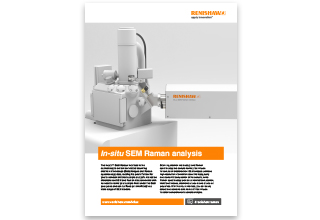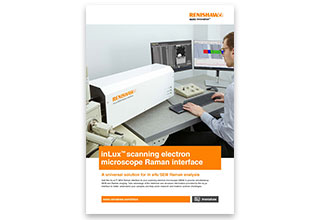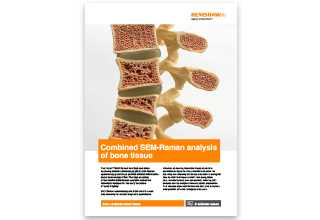inLux™ SEM Raman interface
A universal solution for in-situ SEM Raman analysis
The innovative inLux™ SEM Raman interface brings high-quality Raman functionality to your scanning electron microscope (SEM) chamber. Now you can collect Raman spectra that can produce images in 2D and 3D whilst simultaneously imaging in SEM. The sample remains static between SEM imaging and Raman data collection modes, so you can be confident of precise co-location when comparing Raman images and SEM images.
The inLux interface offers a comprehensive range of Raman capabilities. You can collect spectra from single points, multiple points, or generate 2D and 3D confocal Raman images. The inLux interface comes fully equipped for all this work as standard, enabling you to analyse volumes larger than 0.5 mm in each axis. It features fully encoded position control, down to 50 nm, assuring precise Raman imaging.
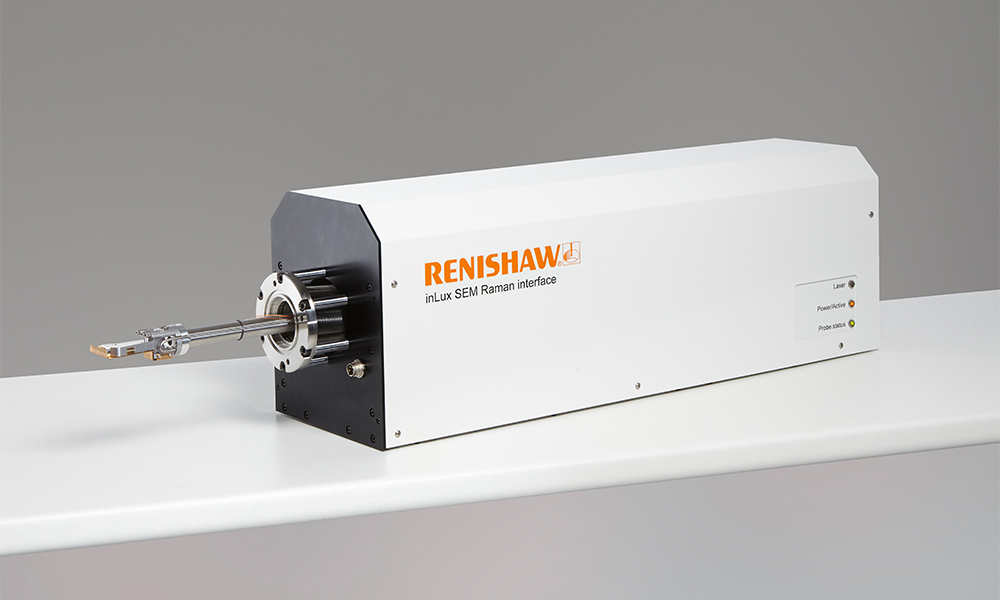
Key benefits
- Information-rich - Raman, photoluminescence (PL) and spectral cathodoluminescence (CL) analysis is performed simultaneously and co-located with SEM imaging.
- Universal - The inLux interface can be mounted on a wide range of SEMs from different manufacturers, with different chamber sizes, and without any SEM modification.
- Non-invasive - The inLux probe can be fully retracted with a single click. This ensures that the probe does not interfere with other SEM functions or workflows when not in use.
- Determine distribution - Confocal Raman images can be produced as standard thereby enabling easy measurement of sample heterogeneity.
- Sample viewing - Large area optical imaging and montaging for visualising your sample and targeting areas of interest.
- Configurable - Up to two different excitation laser wavelengths, plus an optional CL module.
- Automated - One-click switching of laser wavelengths for Raman analysis of challenging samples.
inLux interface applications
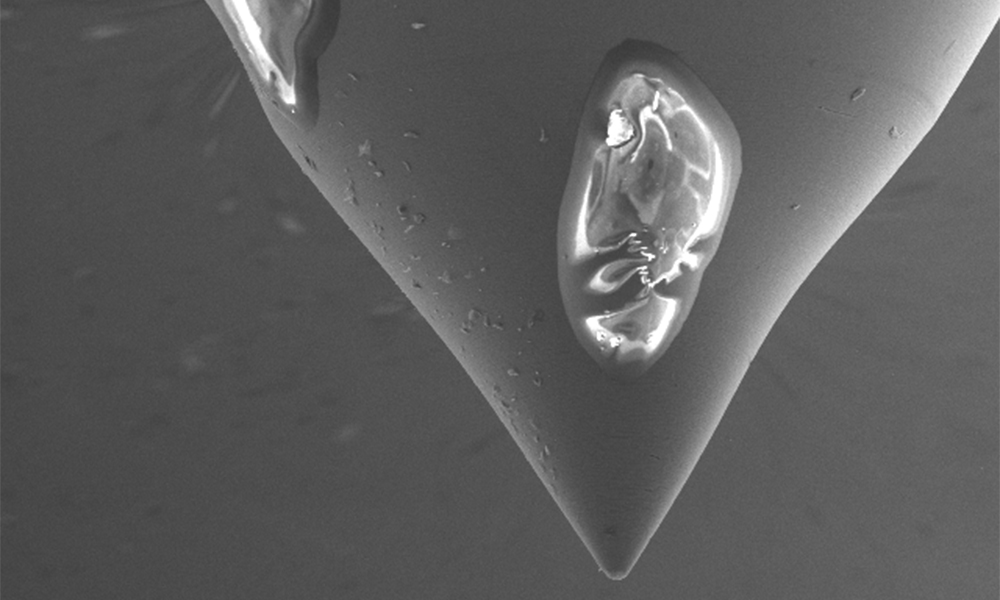
Identifying contaminants
Raman spectroscopy is a non-contact and non-destructive technique that can provide highly specific chemical information making it ideal for identifying contaminants. Raman spectroscopy is particularly powerful for analysing carbon and organic contaminants that would be difficult to differentiate using elemental analysis. An SEM can be used to locate and study the morphology of small contaminant particles that cannot be resolved by optical microscopy. Next, these particles can be directly targeted for Raman analysis using the inLux interface, without having to move the sample.
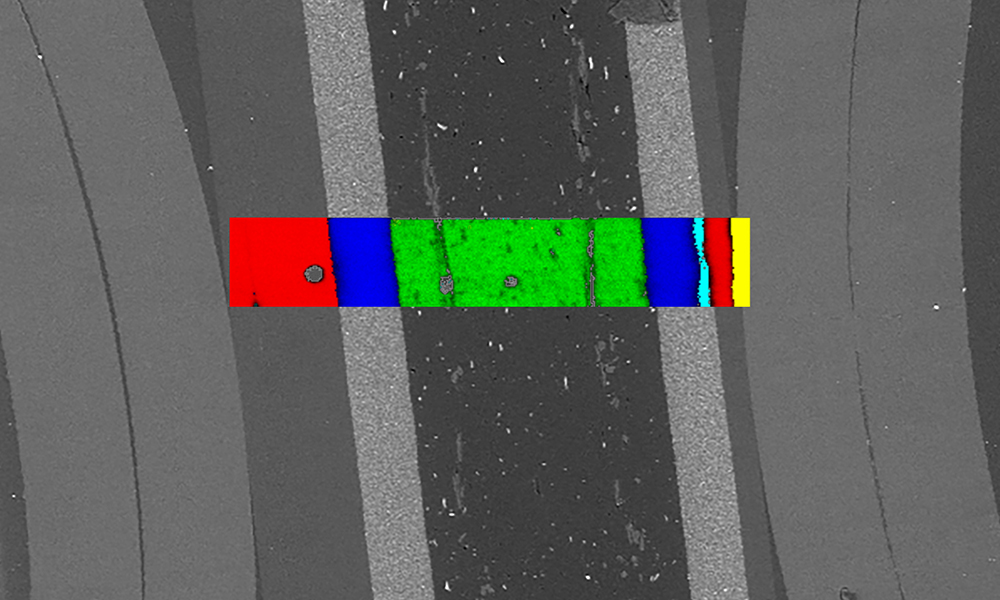
Materials analysis
Many of the novel properties exhibited by materials arise from their size, shape or thickness. Graphene, nanorods and nanotubes are examples of where the high magnification of scanning electron microscopy is vital to visualise the sample. As well as revealing the chemical and structural nature of the material, Raman analysis can also provide information on physical properties. The inLux interface can produce Raman images illustrating crystallinity, strain, and electronic properties that can be correlated to those from the SEM.
Connect to different Renishaw Raman systems
The inLux interface is used in conjunction with Renishaw's research grade Raman spectrometers and software. This provides comprehensive processing and analysis capabilities whilst being intuitively simple to use. From industrial contamination identification to academic research; the inLux interface can help you get the most from your SEM.
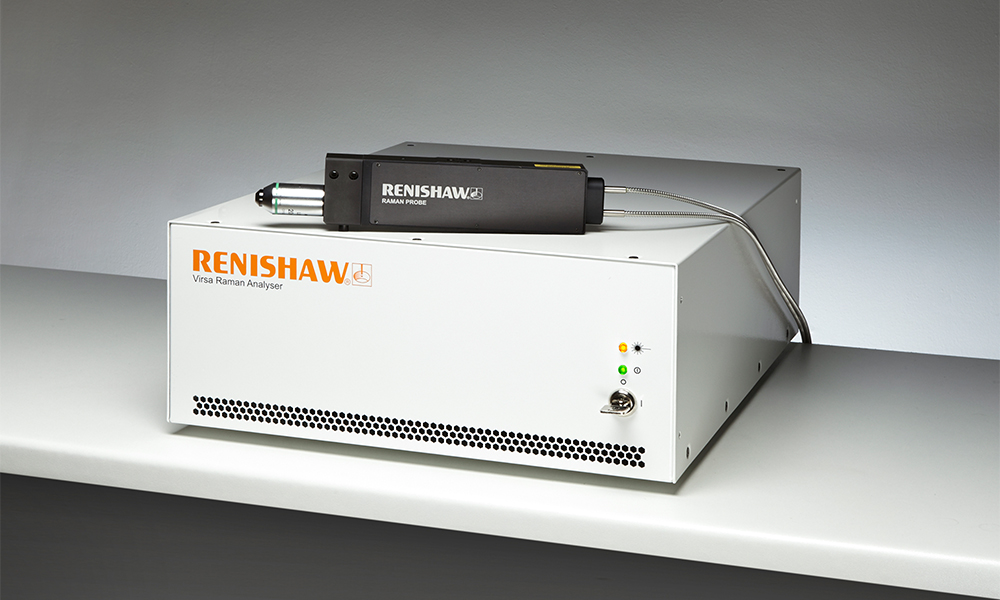
Virsa™ Raman analyser
For dedicated Raman analysis, the inLux interface can be connected to the Virsa Raman analyser. The Virsa analyser offers a compact cost-effective solution to in-SEM Raman analysis, with the high sensitivity and spectral resolution expected from a research-grade Raman system in a rack-mounted body.
Learn more about the Virsa analyser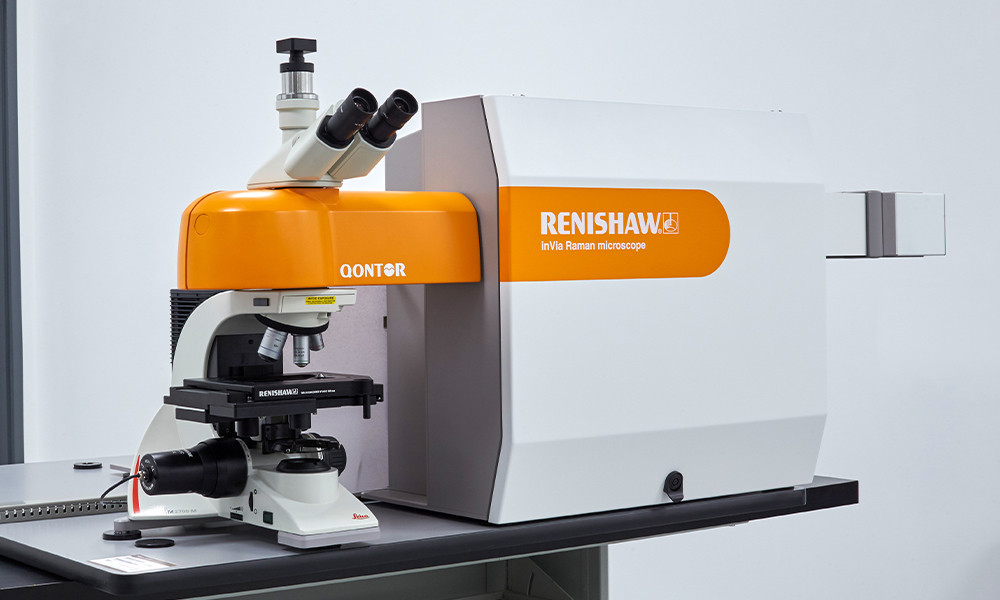
inVia™ confocal Raman microscope
Connect the inLux interface to the inVia confocal Raman microscope to add in-SEM analysis to the world's best-selling research grade Raman microscope. The inVia microscope offers world-leading performance and sensitivity in a configurable range of laser excitation wavelengths, detectors and gratings. It is ideal for analysing any Raman active material. The inVia microscope can be used independently for Raman analysis. Your SEM can then be available for other users when in situ measurements are not required.
Learn more about the inVia Raman microscope
Spectroscopy eBook: The Latest Advances in Correlative Raman Imaging
Raman spectroscopy is a rapidly expanding field, with modern Raman spectrometers offering labs higher ease-of-use and sensitivity. Learn how you can combine Raman spectroscopy with scanning electron microscopy (SEM) or fluorescence-lifetime imaging microscopy (FLIM), thus enhancing the technique for various applications.
- Developments in Raman instrumentation and the innovations of Raman technology;
- In-situ Raman spectroscopy within a SEM chamber, and how the inLux SEM Raman interface provides complementary information during SEM imaging;
- Correlative FLIM and Raman microscopy, with examples of imaging on plant tissue sections and HeLa cells.
Spectroscopy eBook download
Find out more
Tell us about your SEM configuration to learn if your scanning electron microscope is compatible with the inLux SEM Raman interface. Fill in the short form by following the link below and one of our experts will get in touch.
Watch our webinar on the inLux SEM Raman interface
Specifications
| Parameters | Value |
| Mass | < 20 kg |
| Fibre optic cable length | 4.6 m |
| Compatible Raman spectrometers | Renishaw inVia confocal Raman microscope, Renishaw Virsa analyser |
| Compatible SEM models | Compatible with models from all major SEM suppliers |
| SEM port requirement | Requires free SEM side or rear port |
| SEM performance | The inLux interface does not require any SEM modification and can be fully retracted when not in use so it does not interfere with SEM performance or that of other accessories |
| Movement control | Trackpad, WiRE software |
| Contact protection | Touch sensor, safe working volume monitored using absolute encoders |
| Laser safety | Laser interlocked to chamber vacuum |
| Raman mapping/imaging | Supplied as standard |
| Fibre optic module selection | Up to two different laser excitation wavelengths + optional cathodoluminescence module |
| Available laser excitation wavelengths | 405 nm, 532 nm, 660 nm, 785 nm (others available on request) |
| Laser switching | Automated, motorised and software controlled |
| Lateral spatial resolution | < 1 µm @ 532 nm |
| Confocal performance | < 6 µm @ 532 nm |
| Spectral resolution | See spectrometer specification sheet |
| Dimensions | W 804 mm x H 257 mm x D 215 mm |
